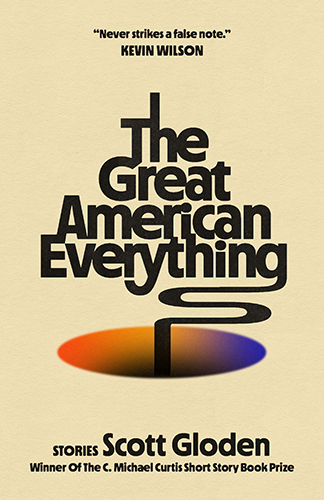Tell us a little about your story collection!
I wrote it. It’s ten stories. The oldest is from 2013, the youngest from 2019. Some were published. Some were not published many times over. However, this is largely because some of these stories are better than others and editors saw that.
Who/what are you reading right now? What inspires you?
Adolph Reed Jr.’s The South, Venita Blackburn’s How to Wrestle a Girl (which was somehow better than Black Jesus and Other Superheroes, though I don’t know how), and friends’ books: Becca Spiegel’s memoir, Without Her, forthcoming from Milkweed; and Cally Fiedorek’s Atta Boy, which hasn’t been snatched up quite yet, reaffirming the slog and failures endemic to this process, but also inspiring to read what can explicitly be accomplished in private.
 How does the South or place in general inform your writing?
How does the South or place in general inform your writing?
The Great American Everything is a lineup of stories that were all written in either Memphis or New Orleans. While I don’t think anyone would read their way through and consider these stories as moving the current of Southern literature, I can say with great confidence I could not have written them elsewhere. The South, in my experience, is capable of giving as much as it takes, and that balance is something I seek when writing and reading.
What would you say is your interesting writing quirk?
I’ll loop music if it’s lowered me into the right place. I’d say there are certain scenes I’ve worked through listening to the same song for 45 minutes.
What do you do when you aren't writing?
I’d wander out the notion that writing is a bit of a catchall for me in that reading is writing, a solid run is writing, my day-in-day-out job—which reinforces my politics and challenges me—is writing; if that’s not true, I am very rarely writing, and that sounds awful sad.
What is something you learned while writing this collection?
Linked collections can be really great, but I am here to upvote unlinked collections. For a long while, I reduced stories to a training ground of sorts, where I tested out certain themes/character arcs and either upgraded the stories into bigger projects or strip-mined my favorite sentences. I never saw this as a weakness until suggestions of making a collection salable arose. I get the impact linked collections can create and why readership can quickly sync up to them, but they’re not how I fell in love with short fiction. The lesson being it’s absolutely okay to just deposit every ounce of yourself into fifteen pages.

169278675.jpeg)
